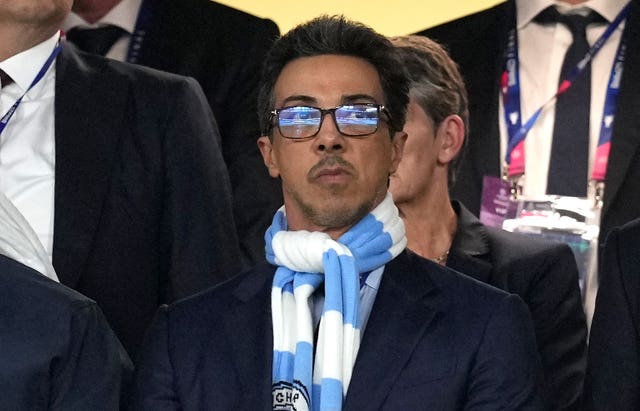A top lawyer representing Manchester City has claimed human rights issues would “distract” a new football regulator if it was required to consider them.
Lord Pannick, who has previously been hired by Boris Johnson and Topshop owner Sir Philip Green, is defending Manchester City against the Premier League’s 115 charges relating to alleged breaches of financial rules.
The independent crossbench peer argued it would take “an enormous amount of time and money” for a watchdog to look at human rights and modern slavery issues when it comes to deciding who is allowed to own a club in the English football pyramid.
His comments came as the House of Lords continued its line-by-line scrutiny of the Football Governance Bill, which introduces a independent regulator for the top five leagues of the men’s game.
Several peers have suggested these tests should consider whether a prospective owner respects human rights and prevents modern slavery while others argued for a flat ban on state-controlled clubs.
In the Premier League, Manchester City is owned by Sheikh Mansour bin Zayed bin Sultan Al-Nahyan , vice president of the United Arab Emirates (UAE), and Newcastle United is owned by the sovereign wealth fund of Saudi Arabia.
Both countries have been accused of human rights abuses.
Lord Pannick told peers that a “very strong case” was made to require the regulator to assess whether a prospective owner of a football club respects human rights and prevents modern slavery.
He said: “I’m very sympathetic to the principle, I’m just concerned about the practicality.
“Is it really practical to expect that the regulator is going to have the expertise, is going to have the time, is going to have the ability to conduct a general assessment of whether a particular person – who may, for all I know, be based abroad – is generally respecting human rights and generally preventing modern slavery?
“This is going to take an enormous amount of time, an enormous amount of money, and I fear it would distract the regulator from the more day-to-day, prosaic functions that Parliament will be asking the regulator to produce.
“I do see the force of the principle, but I remain sceptical in practice.”

He said this would “drive a coach and horses through the current ownership of the Premier League” and that it would be “very serious” to have the Government “take state control over who owns the football clubs in this country”.
Baroness Butler-Sloss, who was the first female Lord Justice of Appeal and is co-chairwoman of the All Party Parliamentary Group (APPG) on Modern Slavery & Human Trafficking, insisted that modern slavery is an important consideration for ownership fitness.
She argued it “should not be all that difficult to discover” if an individual is making their money through the exploitation of people in the supply chain and that it is something “we shouldn’t want our clubs to be involved in”.
She told peers that this is “absolutely what the regulator should be dealing with when he looks at the individual fitness of a particular person wanting to take over a club”.
The independent crossbench peer said that, if the regulator is not required to consider modern slavery, they would not be looking at whether the money being put into football was obtained in a “wholly inappropriate and extremely wicked way”.
Liberal Democrat peer Lord Scriven, vice-chairman of the APPG on Democracy and Human Rights in the Gulf, also argued the regulator should be responsible for ensuring that a person is “fit and proper” to take over and manage a club – and that this includes issues of human rights.
He said: “The reason why this is important is because the concept of sports washing – where sports clubs are bought particularly to try and influence soft power – is really taking hold.”
He also called for a ban on state-controlled clubs, noting that the previous government took action to prevent foreign states taking over media organisations in the UK, rushing through the legislation before the election earlier this year.
This blocked an anticipated takeover of The Telegraph by RedBird IMI, a partnership also backed by UAE vice president Sheikh Mansour bin Zayed bin Sultan Al-Nahyan.






